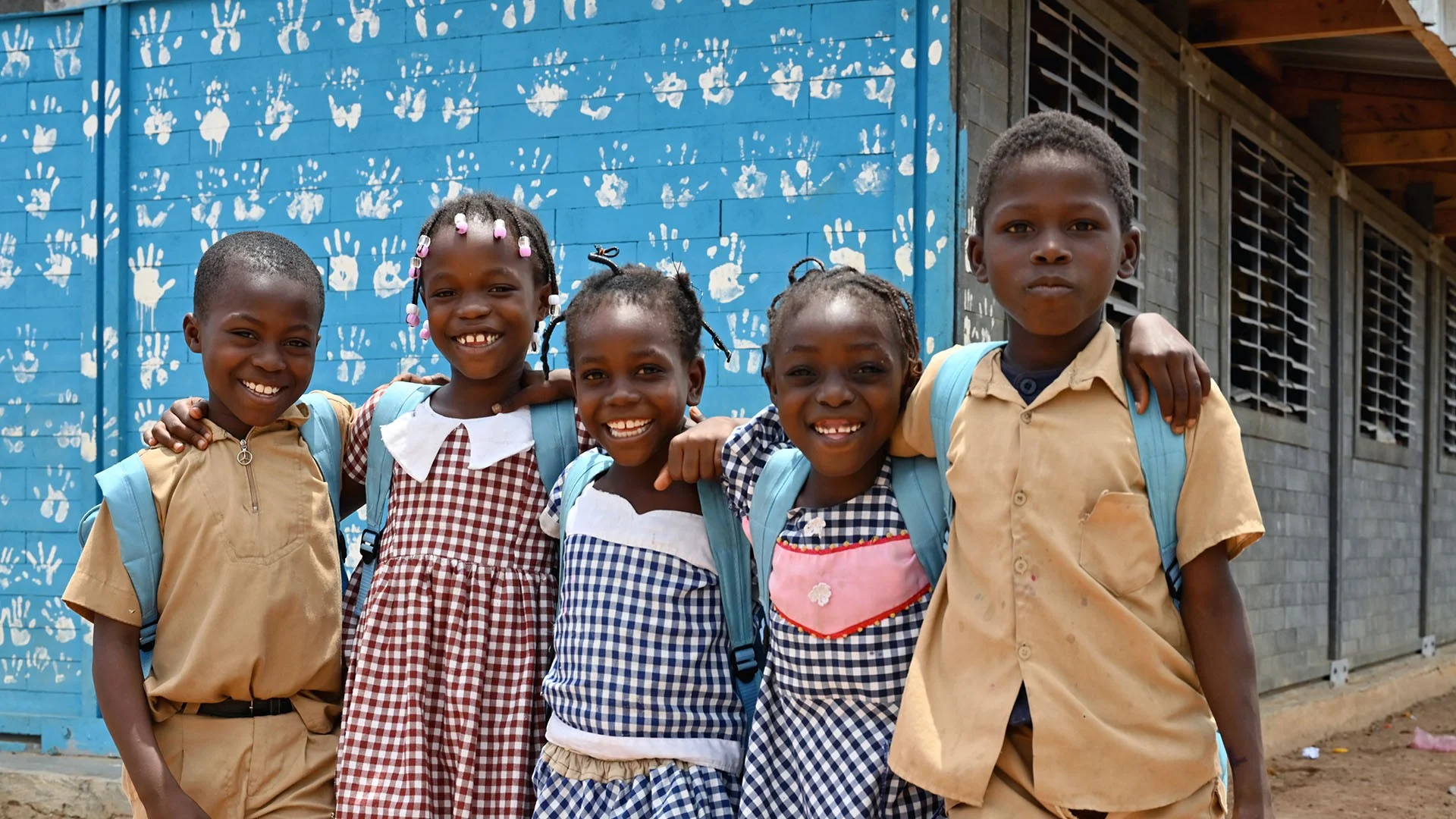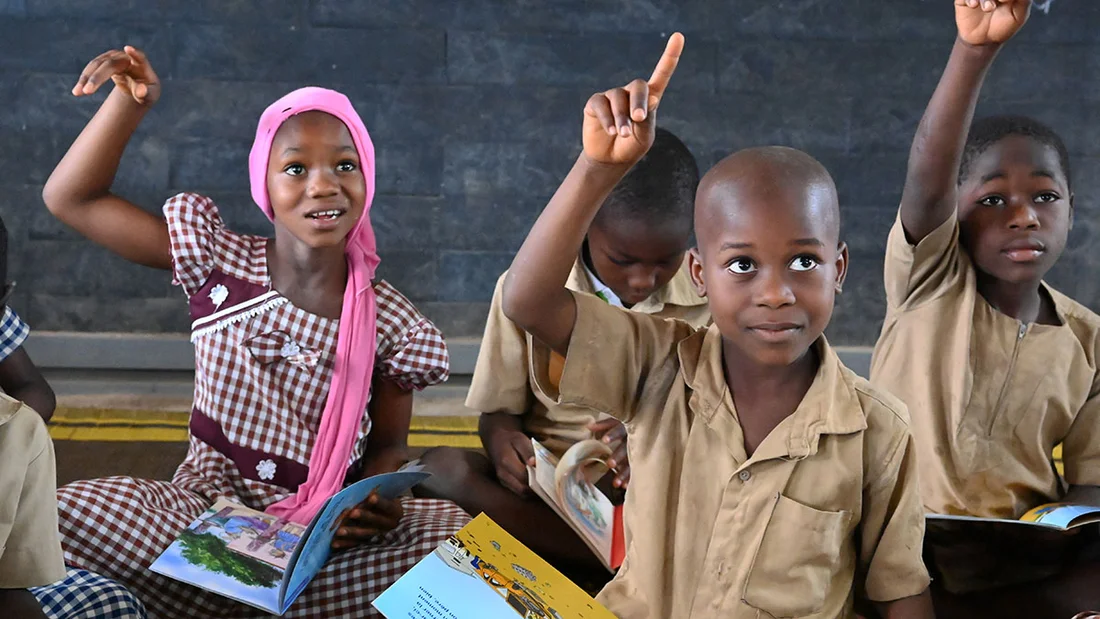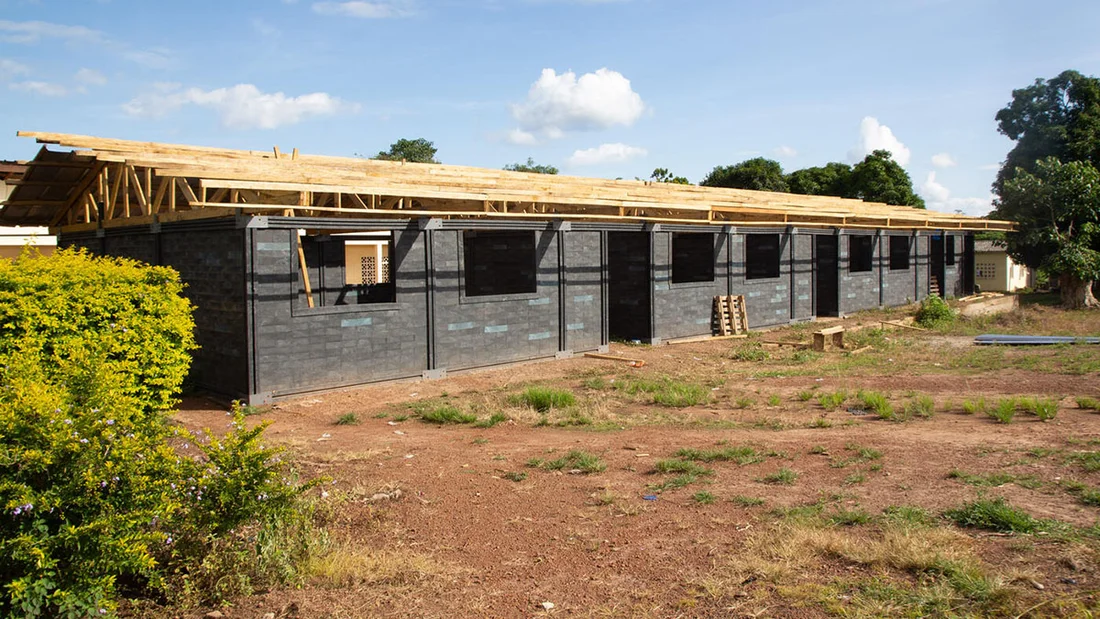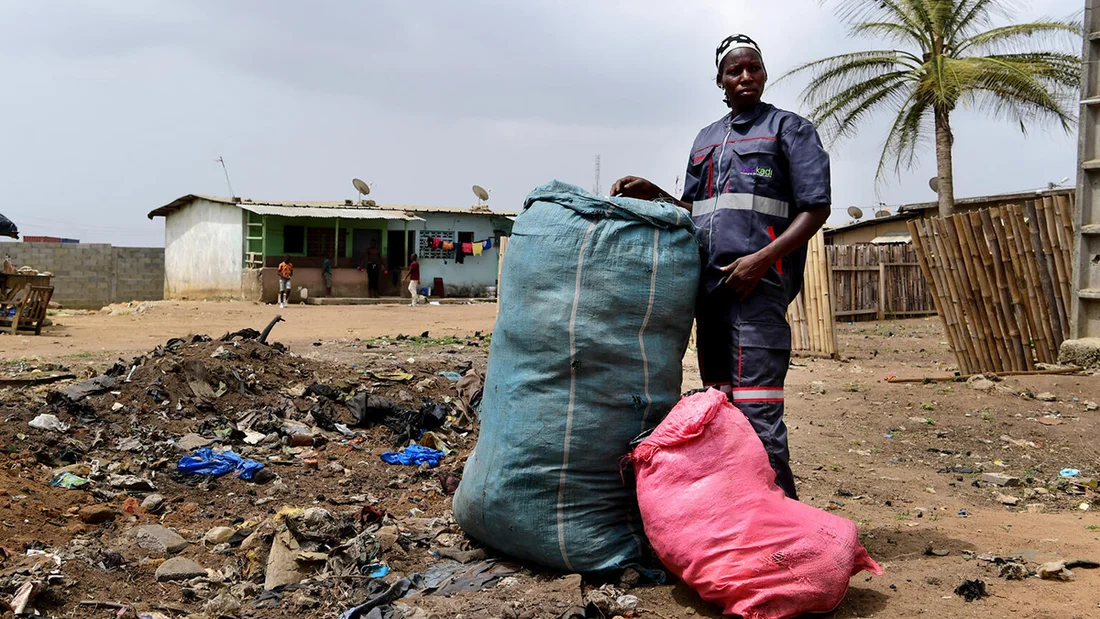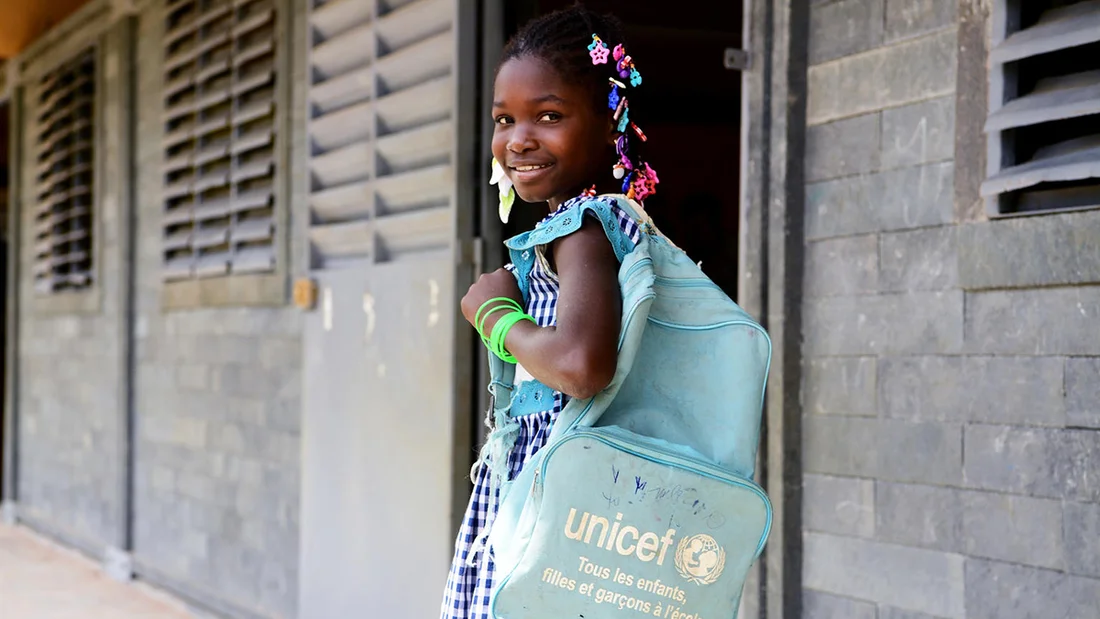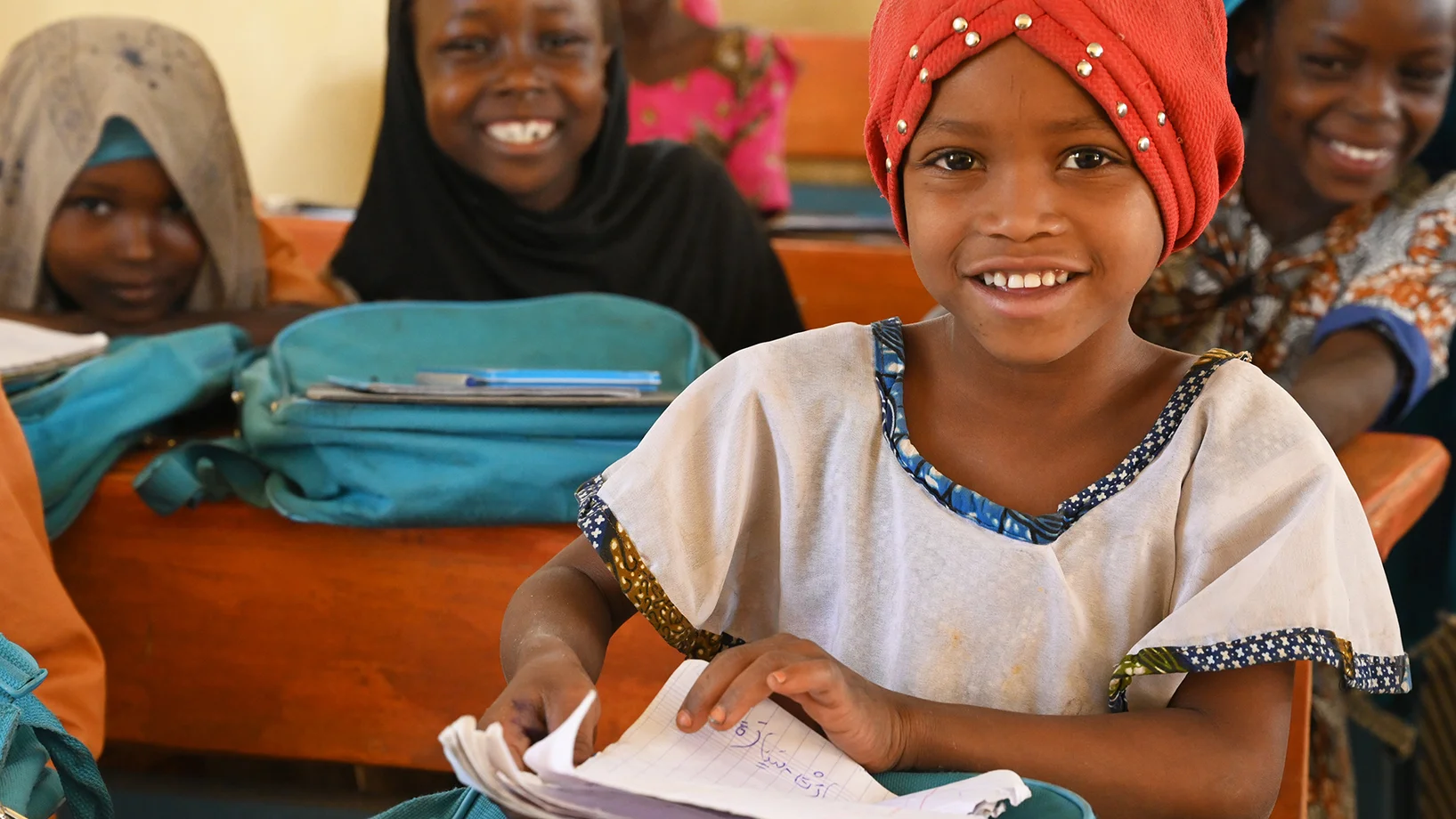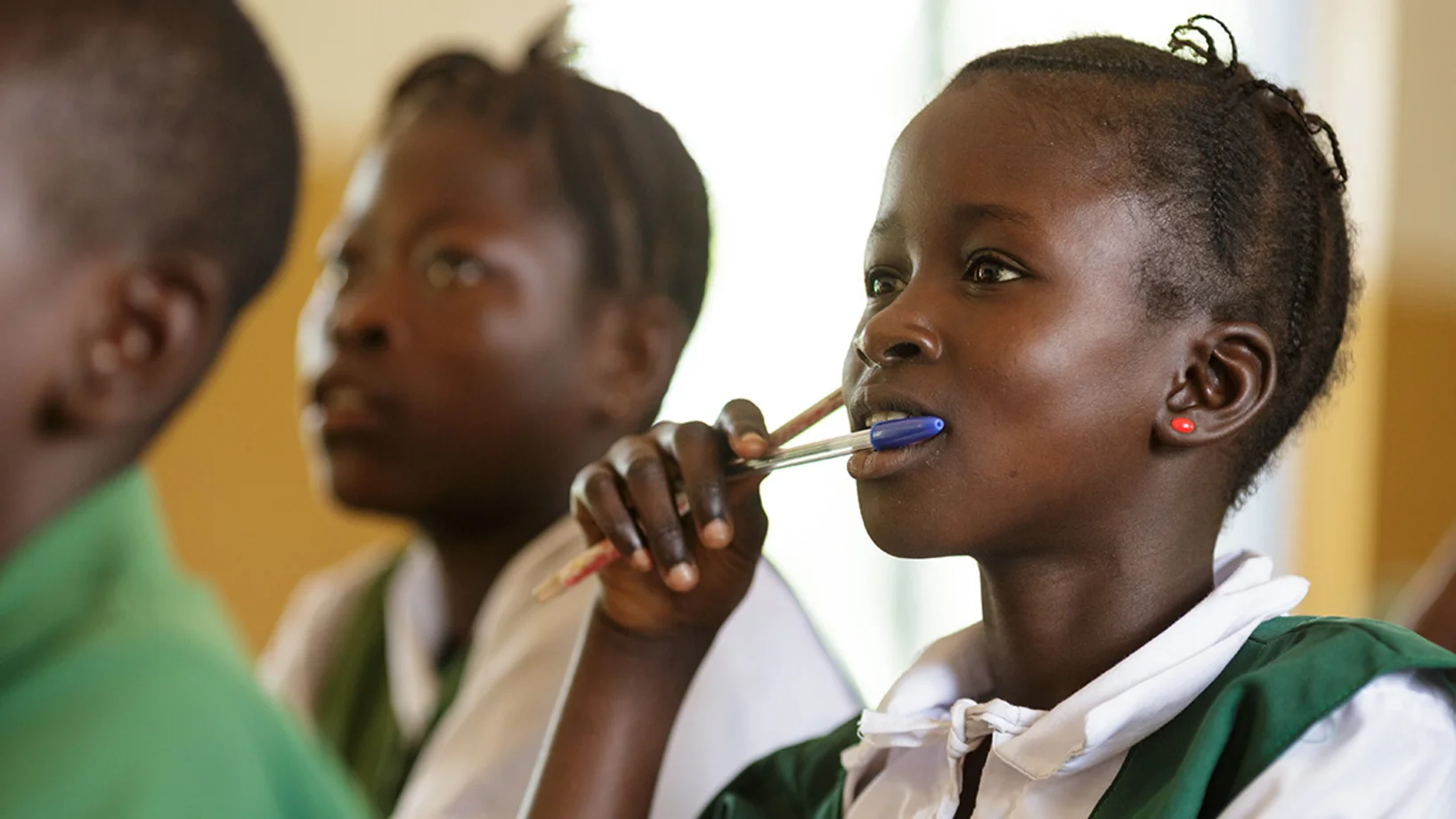Environmental protection and education in one: collected plastic waste is being turned into plastic bricks for the construction of classrooms in Côte d’Ivoire.
The situation
In Côte d’Ivoire, more than two million girls and boys do not attend school, partly due to a lack of classrooms. Many children have to travel long and sometimes dangerous distances to sit in a dark and poorly ventilated room with up to a hundred other students. As a result, around 42 percent of the country’s young people currently cannot read or write.
Côte d’Ivoire also has an environmental problem. In the economic center of Abidjan, 288 tons of plastic waste are produced every day. Only five percent of this is collected and handed over for recycling, mostly by women who receive less than a dollar a day for this work. The vast majority of the plastic remains in landfills or is scattered throughout the villages. It pollutes the soil, the air and the water. While the piles of waste continue to grow, the landfills pose a major health risk to the population. Because young children’s organs are still developing, and they absorb more pollutants than adults in relation to their size, they are particularly badly affected by this form of environmental pollution.
How UNICEF helps
Together with its partners, UNICEF has found a way to address both challenges simultaneously by using plastic waste to build schools. In cooperation with the Colombian company Conceptos Plásticos, plastic waste is being transformed into a low-cost, durable and easy-to-process building material that can be used to build schools.
The waste collectors, who were previously barely compensated for their work, can now sell the plastic waste directly to Conceptos Plásticos and receive adequate payment for it.
Through the program, UNICEF has introduced an innovative approach to building school infrastructure and providing equitable opportunities for children, young people and women using a climate-smart development model.
- Creating additional classrooms gives disadvantaged and vulnerable out-of-school children access to education. At the same time, the quality of the education is improved thanks to a more pleasant learning environment and better teacher-to-student ratios per class.
- The informal plastic waste recycling sector is formalized by selling plastic waste directly to Conceptos Plásticos without intermediaries. Women thus receive 80 to 90 percent of the final market price, which significantly improves their income.
- Reducing the amount of plastic waste in landfills will contribute to a better environment in the cities over the long term. This in turn will reduce the risk of children contracting diseases such as malaria or pneumonia.
